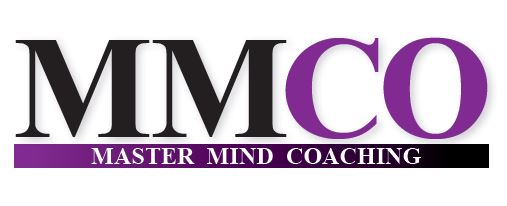Article Content from the Field of Master Mind Coaching (MMCO)
From the desk of: Alicia Lynn Diaz
To: Entrepreneur
Re: How To Breathe Your Stress Away
Date: Wednesday, September, 26, 2018 at 1:59 p.m. ⏰
Dear Entrepreneur,
My name is Alicia Diaz, and I live in San Diego, California. I’m an Ayurveda coach, yoga instructor, and holistic medicine believer. I would like to share some information I feel would be useful.
Did you know…?
Yoga is an excellent practice for flexibility and postural alignment, it is much more than just stretching?
Traditionally in India, yoga practice was approached with the purpose of bringing calmness and peace to the mind and body.
The word “yoga” actually means “to unite” referring to all aspects of ourselves.
This uniting of mind and body through awareness of thoughts, movements, posture, body processes, emotions and breath encourages a deeper understanding of ourselves on all levels and how we operate in the world around us.
Do you ever notice when something external triggers you–such as someone’s words or perhaps you learn of some bad news– you feel a tension take over your body?
Perhaps a knot in your stomach, tension in your shoulders, or maybe your breathing moves up to your chest and becomes shallow.
This is the body’s physical response to something non-physical (in the mind) thus creating stress and tension in the body. Let’s take a look at this phenomenon from a scientific standpoint.
When stress is introduced to the body, the sympathetic nervous system takes over, or the body’s “fight or flight” response. A series of hormonal and chemical reactions begin to take place to call necessary systems to action and shut down those that are not needed for the emergency.
Blood is directed towards the muscles so they are ready for action, heart rate and blood pressure increases, and functioning of all unnecessary body processes slows down (i.e. digestion, immune function, growth, reproduction).
I’m sure you can remember a time in your life where you have experienced this “sympathetic response”. Now, what would happen if your body stayed in that consistent state of stress? Would you be able to sleep soundly, digest food, assimilate nutrients, and relax your body if there were elevated levels of adrenaline and other stimulating chemicals circulating throughout your blood?
Even when you are on a day off or doing an activity that is supposed to be relaxing, do you sometimes still feel some of the effects of the sympathetic response on your body? The mind has such a powerful effect on the body that scientists examine the “placebo effect” in every medical research study.
How can the mind trick the body so effectively into thinking that a sugar pill is doing the same thing as a medicine would and have the same effect?
Perhaps the mind can be conditioned to be our ally rather than our enemy when it comes to the effects had on the body and therefore improve our overall quality of life.
There are many yoga techniques that are helpful in conditioning a parasympathetic (relaxation) response in your body that are not only effective on the mat but can be carried into your everyday lives as well. Here is a brief introduction to two basic practices for calming the body and mind.
RESTORATIVE YOGA POSTURE:
Yoga poses, also known as “postures” or “asanas” should always embody a sense of steadiness and ease. If you can find this balance, even in a challenging posture requiring a lot of muscle strength, you are effectively training both your mind and your body to imprint that response into your physiology. When you take your practice off the mat, you can also take on everyday stress with steadiness and ease. In addition to practicing this mindfulness during a yoga session, there are poses specifically classified as “restorative” to allow all systems of the body to decompress and relax deeply. Here are two that you can try at home.
Exercise #1 – Chest Opener:
This pose gently stretches the chest and expands the lungs, aligning the shoulders and aiding the process of deep breathing. It can be done with legs crossed to open the hips, legs straight out and relaxed or with a bolster under your knees. Hold position for 5-10 min with palms up.
Exercise #2 – Legs Up The Wall Pose:
This pose relaxes the heart and blood pressure and can be done with hips on the floor or supported by a bolster. Hold position for 5-10 min while doing breathing exercises below.
BREATHING PRACTICES FOR RELAXATION:
Belly Breathing with Count:
-
Lie on your back with your head supported and relax the arms and legs.
-
Direct your breath down into your lower abdomen so the belly rises and lower rib cage expands with the in-breath and relaxes with out-breath (there should be no movement in the upper chest)
-
Focus on lengthening the exhale and slowly allowing the inhale to become deeper without forcing it.
-
You might start with a 2 count exhale/inhale and work towards slowing down to 5 count and eventually reaching 10 counts.
-
The key is to never strain when practicing this technique and if you feel uncomfortable in anyway gently return the breath to normal.
Ujjayi Breath:
Continuing with the relaxed belly breath, this technique can be used to further deepen your relaxation.
-
Inhale through your nose normally and as you exhale narrow your vocal cords to make a “hhhhhhh” sound (as if you were trying to create fog on a glass surface but with lips closed).
-
Take long, slow, deep breathes exhaling with the ujjayi breath and focus your attention on that sound allowing all other thoughts and sounds to dissipate.
- Continue this practice for 1-2 minutes.
Yoga and breathing are excellent ways to help alleviate the unwanted stress in your life.
To Your Breathing Success,
Alicia Lynn Diaz
Author, Writer, and Content Contributor
Transformational Life Coach
Email: hello@alicialynndiaz.com
 Email Us a Message
Email Us a Message 

Please send us an email message below and we will serve you momentarily.





 Fly Over to the MMU Facebook Page with Hoot
Fly Over to the MMU Facebook Page with Hoot 

 Join the MMU Facebook Group Today
Join the MMU Facebook Group Today